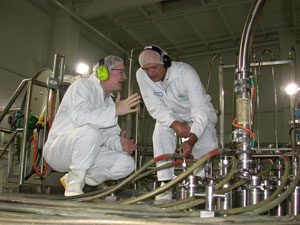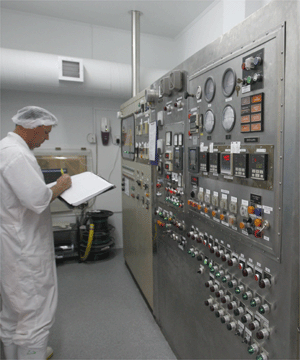Dairy Process Operator
Tasks & duties

Dairy process operators may do some or all of the following:
-
operate machinery to make dairy products
-
mix and cook dairy product ingredients
-
mould or shape the dairy product
-
monitor the production process
-
monitor how cheese matures over time
-
take samples of the dairy product at various stages
-
test dairy product samples
-
operate packaging machinery
-
clean and sterilise machinery
Specialisations
Some dairy process operators may work on smaller production scales as a boutique cheesemaker. This often involves more labour intensive methods of production.
Skills & knowledge

Dairy process operators need to have:
-
knowledge of the ingredients and types of dairy products they are making
-
knowledge of methods of production and quality control
-
an understanding of health and safety regulations
-
technical skills including how to use and care for equipment
-
an understanding of milk chemistry and microbiology
-
basic maths skills
-
the ability to follow instructions, with an eye for detail
-
the ability to keep accurate records
-
basic laboratory and computer skills
-
decision-making skills and organisational ability
Mechanical skills, such as the ability to maintain and operate machinery, may also be useful.
Entry requirements
There are no specific requirements to become a dairy process operator as skills are gained on the job. However, a Diploma in Dairy Technology is preferred by some employers.
Secondary education
At least four years of secondary education is preferred. Useful subjects include chemistry, English and maths.
Tertiary education
Courses in engineering, food hygiene and food technology, or a diploma in science are useful for dairy process operators.
Training on the job
Skills are gained on the job and through in-house training courses. Courses are also run through the New Zealand Industry Training Organisation.
Dairy process operators may study towards the Diploma in Dairy Technology and the Graduate Diploma in Dairy Science and Technology while working.
Useful experience
Experience within a manufacturing, dairy farming or laboratory environment, or any experience involving food handling and hygiene is useful.
Related courses
Food (excluding Seafood) Processing Technology
Food Hygiene
Food Science and Biotechnology
Document Actions
